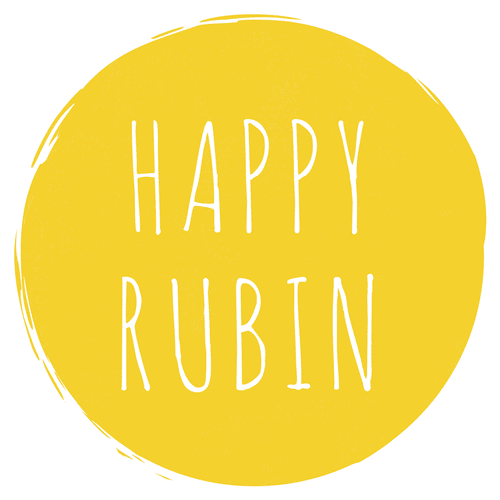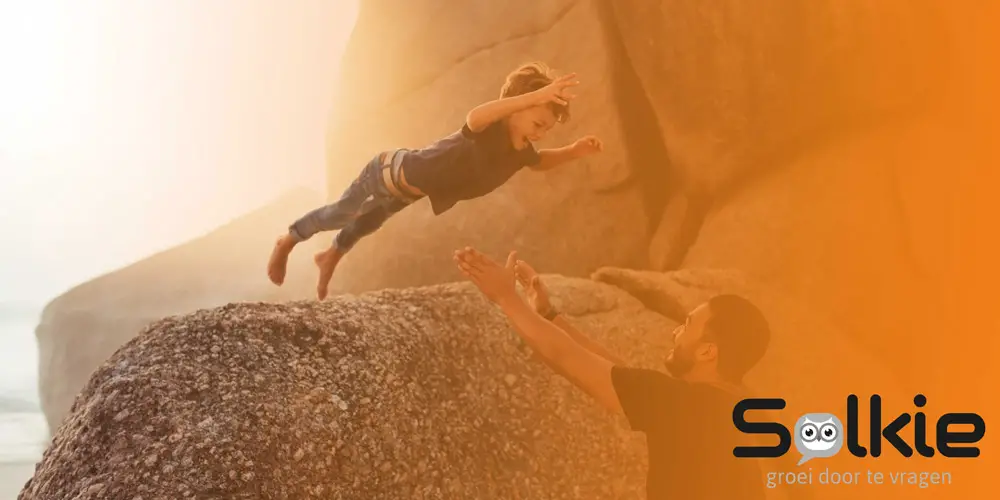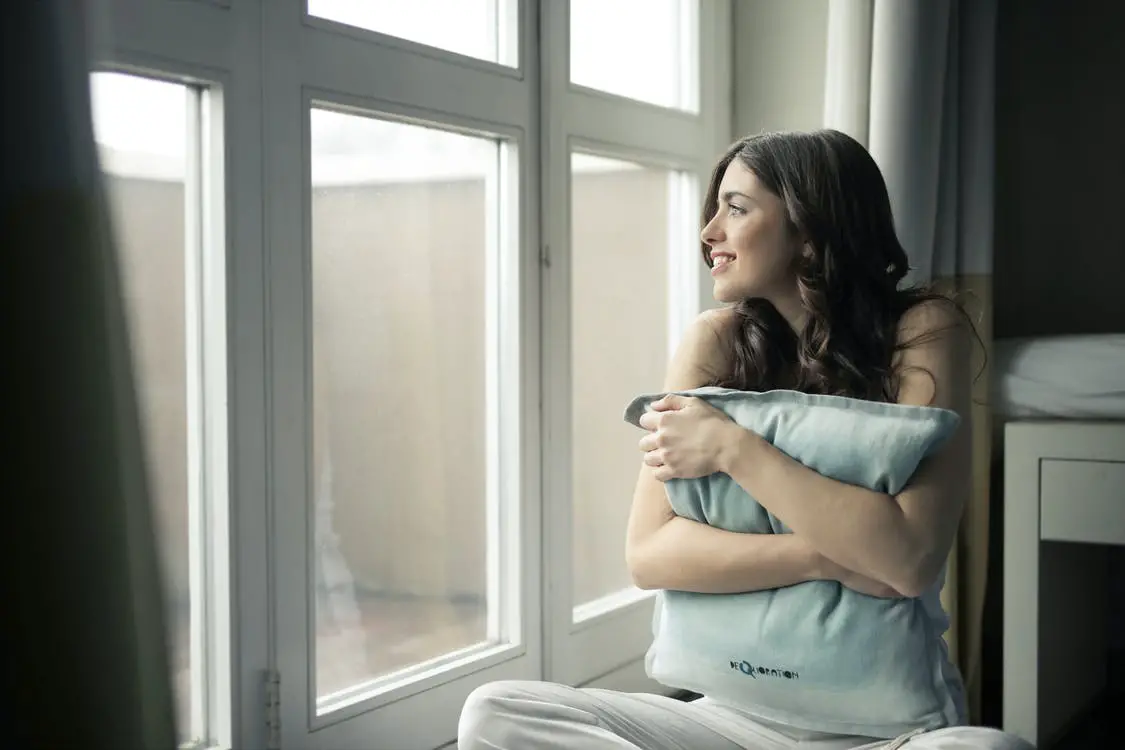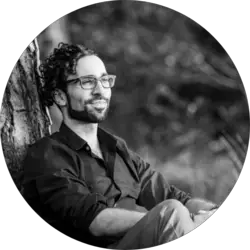![How To Deal With Sensory Overload [9 Tips For Overstimulation]](https://happyrubin.com/wp-content/uploads/2019/12/ik-ben-overprikkeld-150x150.jpg)
The As-If Frame Explained & Examples (It Works!)

In this article you will find the meaning and examples of the as-if frame, aka the wonder question. This is the question with which you step into the solution (working in a solution-oriented way). All variants of the as-if frame are discussed in this article. Read along…
Contents of this page:
What is the as-if- frame, aka ‘wonder question’?
The wonder question is a question you ask yourself or someone else in order to “pretend”. This makes you more inspired to find and use solutions.
The wonder question is also called the dream question. In addition, it is known as the ‘what if / as if’ frame:
- “What if …” “Imagine that …”
- ‘Just pretend that …’
What can you use the miracle question (‘as if’) for?
The principle behind the wonder question can be used in countless ways …
- The as-if question is a technique that is very useful for goal setting.
- You can also use it at other times in coaching and solution-oriented work. For example when someone is stuck or is thinking in the box. At times like that, you can use the wonder question as a resource.
- You can pretend that you already have a skill or capacity , which will allow you to learn a new skill very convincingly and with pleasure. What would happen if you could? If I were the best in the world at what I do, how would I behave? Just pretend you already have full confidence and energy and are the best version of yourself. How do you behave then? How do you think? What are you doing then?’ And use any other questions of the structure of the subjective experience, as described halfway through this coaching question article.
- You can use it to give people a feeling / state of mind. “Now let’s pretend we’re all having a really good time.” Even stubborn moods such as depression can be broken with ‘pretend’.
- Top athletes such as Michael Jordan, Erben Wennemars, Epke Zonderland and Pieter van den Hoogeband and Roger Federer make a video in their heads in which they repeatedly imagine the perfect performance. They repeat those films over and over, so that they are burnt to their retina. If you want to read steps of this, read the article about this technique (the New Behavior Generator) .
- You can use the miracle question as a remedy. For example, if you don’t get cooperation or resistance from someone: “Let’s pretend that didn’t happen.”
- If you want to get someone to do something , you can use the wonder question to get someone to do it in small steps. This also takes advantage of the effect of the ‘salami technique’: “Imagine you could do it. What if you were really good at it? You just have to pretend … well, now that you’re already doing it. you’re doing you might as well be doing it all the way. “
- And there are many more applications. It always comes in handy.
If you’re good enough at pretending you can do something, you can master any skill.
– Milton Erickson
As you can see, the miracle question aims to move you towards a solution. It is therefore a technique from the world of ‘solution-oriented working.’
Why would you use this technique? Isn’t it ‘fake’ to pretend as if?
But why would you actually do that? Why would you pretend? Isn’t that fake? Not if you believe . And that’s what the wonder question is all about.
The most special people pretend that everything is already there. Great thinkers trust in a solution to every problem. Great leaders let themselves be guided and inspired. Great healers see the healing and wholeness of people before a healing begins. Imagine that whatever you need is already here. What do you want? Wisdom? That’s already here. Peace? That’s already here. Inspiration? It’s already here. It’s all here because you’re here.
And after you apply the miracle question, so after you ‘pretend’, you don’t even have to worry about whether or not the ‘actual feeling’ will come. Because now it just feels like you already have it. That feeling is the same as the ‘real’ feeling.
Demonstrate it in action – even before you believe it. Your demonstration will prove its existence to yourself.
– Neale Donald Walsch
Let’s start right away by exploring different ways you can practically apply the wonder question.
You ask the miracle question by starting with: “What if …” or “Pretend …”

- ‘I can not dance.’ ‘What if you could? How would you move? ‘
- ‘I do not know.’ “If you did, what would it be?”
- “I can’t visualize.” ‘I can imagine. So pretend you could. ‘
- What if you could feel the energy and the pain at the same time. And I wonder how easy that is. And which one do you want to feel more? And while you know which ones you want to feel more, what are you aware of?
- What if you felt really good now?
- What if you didn’t have {the obstacles}?
- Children sometimes put on princess dresses. And when a child does that, it becomes a princess. If a child puts on a pirate suit, it becomes a pirate. Of course we all see that it is not a real princess or a pirate, because it is just pretend. The child does not know exactly how it could be a princess or a pirate. Still, the child can imagine what that is like and why the child wants to be a princess or a pirate!
- What if a fairy came and if you could make a wish, what do you want to succeed in? What purpose? She ensures that you have all the power, contacts and resources to achieve that goal.
- Okay, here comes the picture! Everyone just pretend you’re having a really good time!
- What would it be like if it had already worked out?
- What would you do if you couldn’t fail?
- In the Yoga class, where you want to stay in the here and now, ” Pretend you’re doing it for the first time.”
- For confidence: ” Pretend you have rock solid confidence.”
- For presenting: ” Pretend to be the best trainer.”
Now let’s look at 3 possible directions of the wonder question
To the future …
- Pretend we are 6 months later and …
Another person…
- Pretend that you are person x …
You already have the behavior …
- Pretend you are already able to do x …
(And you can do that with all other neurological levels too)

What would it be like if …
- What would it be like if you found you were learning these exercises naturally and quickly? I’m not suggesting you can do that, but I wonder what that would be like.
- What would it be like if you just relaxed and learned how to do this naturally? You do not have to do it. Just imagine what that would be like …
- What would it feel like if you were comfortable with dogs and could just go there and pet them?
- How would it feel if you’d made all that change now?
- How would it feel if you found a new way to view this problem?
What if …?
- What would happen if you were able to …
- What happens if you just decide not to let him influence you anymore?
- I’m just asking, but to find out what’s happening you have to do it. What happens when you can imagine what it’s like to experience all the benefits of continuing this change? What happens if you can imagine that you have the skills to use these techniques effortlessly?
What if – hypothetical
You are talking about an experience that could take place in the past or in the future. Also, be sure to provide examples and describe that process afterward. For example, you can also use the what-if technique when the client complains that he feels a pain and therefore cannot concentrate on the exercise.
It’s like…
- It’s like your attention is focused on learning now, which makes it much easier to learn everything.
Imagine…
- Just imagine what it would be like if you could communicate with great precision and influence. How much better are people responding to you now?
- Imagine what is possible when you buy product x!
- Imagine you didn’t have obstacle x.
- Suppose you already managed to overcome all beliefs regarding {doubt}. How would you think / believe otherwise?
Pretend
- Just pretend you’re a type of person who can perfect these skills easily.
- Let’s pretend you’re going to really relax.
- Let’s pretend you’re going into a trance.
- Pretend you would earn x. How would that be?
- Pretend x is possible. How would that be?
Think of…
- Think about the last time you were in a challenging situation and where you managed to recover.
- Remember that you have had difficult moments and survived them.
How was it when you …
- What was it like when you had super nice feelings for someone?
If-then…
- If I … Are we getting down to business?
Using the wonder question for ‘pseudo orient in time’
Here you let the other already imagine the future by means of the wonder question, because the resistance has already gone and the other is enjoying the benefits!
The historical wonder question
- Have you ever discovered a special secret that made it easy for you to take charge?
- Have you ever wish you had a better life?
- Have you ever wanted a simple solution to complex problems?
- Have you ever gone for the different choice instead of the good one that made you miss a lot? Isn’t it time to change that?
- Have you ever opened doors for yourself because of your ability to make others feel good and do valuable things for them?
- Have you ever felt blessed by your insight to say just the right thing at the right time?
The future wonder question
- Couldn’t you wait to test your new skills on your friends, colleagues and family?
- Would you rather take the easy way or the way that guarantees success?
- Can you see how nice it can be to be able to effortlessly coach and help the people around you, after which they will also agree with your projects and ideas?
- Wouldn’t you feel moved by the nice things people will say about you after you help them see things from a more positive perspective?
- Would you like how much more you can achieve and how much more positive people will be against you?
Conversational postulate
With the conversational postulate you ask someone an ordinary question, while the other person has to do a few things inside to be able to answer the question, which will cause the other person to go into ‘trance’.
In addition, a presupposition effect occurs: with this you do not ask a literal question or request, but it is implied. The advantage of this is that you do not come across as authoritarian. These yes / no questions are ambiguous because it is not clear to which time and space the question relates (and the listener feels the energy rising to do it now).
- “Could you imagine that …” To answer this question, you have to go inside, which will put you in a trance.
- Would it still work if you …
- “Are you fully considering what I just said?” No. “Could you?”
- If you had been my girlfriend, what would you do or say when I come home tired one day? (This requires the other person to imagine what it would be like to be your girlfriend.)
- Can you close the door?
- Can you see yourself doing this?
- Can you see what I’m saying?
- Can you reach that level now?
- Would it be okay to feel this good?
- Do you know you already know?
- Can you remember taking good care of yourself?
- Does this sound like this could work for you?
- Do you feel prepared to sign the contract now?
- Do you think you can make the changes you want to make?
- Would you like to … Sit there … And relax now?
- Would it be possible for you to close your eyes?
- Will you be able to close your eyes?
- Would you manage to tell me what’s going on?
- Can you feel comfortable?
- I wonder if you can close the window?
- Would you feel more comfortable if your eyes were closed?
- Can you think about the idea of coming? Pretend.
- Would n’t you mind coming up with some extra converstional postulates? Can you do that … easily … now?
(It’s just a suggestion …)
Did you know that the wonder question is part of solution-oriented working?
Those were all examples of the wonder question, or the what-if technique. The wonder question is part of solution- oriented working .
Even Louis Cauffman discusses in his book about the miracle solution-focused question. This is about simple, positive and solution-oriented conversations. This often refers to the special methods of Milton Erickson. Recommended.
And ‘pretending’ is actually exactly the same as the ‘real’ activity. Why worry whether it will actually come or not? With pretend and visualization it feels like you already have it, which is exactly the same feeling as actually having it.
You have to live like every day is Sunday!
Good luck applying the wonder question!

![5 Best Self Care Tips For College Students [#1 Advice]](https://happyrubin.com/wp-content/uploads/2021/09/the-best-self-care-tips-for-college-students-440x264.jpg)
![How To Stick To New Year’s Resolutions: 9 Tips [Smart & Sure Ways]](https://happyrubin.com/wp-content/uploads/2019/12/tips-voor-goede-voornemens-440x264.jpg)
![How To Stop Being So Hard On Yourself [9 Great Tips]](https://happyrubin.com/wp-content/uploads/2019/12/we-moeten-zoveel-van-onszelf-en-anderen-150x150.jpg)

![19 Best Ice Breaker & Get-To-Know-Eachother Games [Fun & Simple]](https://happyrubin.com/wp-content/uploads/2018/02/leukste-ijsbrekers.jpeg)
![Becoming More Social: 41 Tips [Improving Social Skills] [List]](https://happyrubin.com/wp-content/uploads/2018/06/sociale-vaardigheden1.jpeg)
![How to start a conversation with anyone: 15 tips [Making contact]](https://happyrubin.com/wp-content/uploads/2017/08/gesprekstechnieken1.jpeg)
![372 Friend Tag Q&A Questions [Best Friend Quiz]](https://happyrubin.com/wp-content/uploads/2019/05/best-friend-tag-vragen-voorbeelden.jpg)



![Clingy & controlling behavior of partner/date [Extreme examples]](https://happyrubin.com/wp-content/uploads/2020/06/claimerig-gedrag-van-partner-eigenschappen-en-voorbeelden-150x150.jpg)

![How to recognize if a man is in love [Signals & his body language]](https://happyrubin.com/wp-content/uploads/2020/05/verliefd-gedrag-van-mannen-herkennen-150x150.jpg)


![Free will and religion / theology [Verses & Quotes on free will]](https://happyrubin.com/wp-content/uploads/2020/10/religion-on-free-will-quotes-1050x640-1-150x150.jpg)

![Dealing With Setbacks & Hardship [Lessons & Examples]](https://happyrubin.com/wp-content/uploads/2018/11/omgaan-met-tegenslag-tips-hoe-dan.jpeg)
![NLP Agreement Frame: Use these exact sentences [Examples]](https://happyrubin.com/wp-content/uploads/2020/10/agreement-frame-nlp-1125x640-1-440x264.jpeg)
![122 Best Comebacks In Any Situation [Best Examples]](https://happyrubin.com/wp-content/uploads/2020/06/beste-comebacks-technieken-tips-440x264.jpg)
![Using Hypnosis to Stop Smoking [HowTo]](https://happyrubin.com/wp-content/uploads/2020/05/stoppen-met-roken-door-hypnose-150x150.jpg)
![Presuppositions language pattern: meaning & examples [NLP]](https://happyrubin.com/wp-content/uploads/2020/04/wat-zijn-vooronderstellingen-150x150.jpg)
![Peripheral Vision: Meaning & Exercise [Essential Skill]](https://happyrubin.com/wp-content/uploads/2020/04/perifeer-zicht-trainen-tips-150x150.jpg)

![How To Start A Coaching Business [21 Smart Tips]](https://happyrubin.com/wp-content/uploads/2018/11/coachingpraktijk-starten-tips.jpeg)
![How to make dreams come true? [33 tips to realize dreams 100%]](https://happyrubin.com/wp-content/uploads/2018/05/dromen-mijlpalen.jpeg)
![How To Become Rich? 27 Millionaire Tips [Guaranteed To Work]](https://happyrubin.com/wp-content/uploads/2018/01/hoe-kan-ik-rijk-worden.jpeg)
![77 Best Online Marketing Tools [Recommendations] [Also Free]](https://happyrubin.com/wp-content/uploads/2018/08/beste-onlne-marketing-tools-tips.jpeg)
![Complete List Of Virtues & Qualities [Including Explanation]](https://happyrubin.com/wp-content/uploads/2018/12/kernkwaliteiten-uitleg.jpeg)
![Being Attentive: How Do You Do That? [Meaning & 9 Tips]](https://happyrubin.com/wp-content/uploads/2019/05/attent-zijn.jpg)
![Being Conscientious: Meaning Of This Virtue [Explained]](https://happyrubin.com/wp-content/uploads/2018/07/Consciëntieus-persoon.jpg)


![Best Books About Burn-Out [Top 10] [Update 2025]](https://happyrubin.com/wp-content/uploads/2020/06/beste-boeken-over-burnout-lijst-440x264.jpg)
![Best Self-love Books [Top 10] [Update 2025]](https://happyrubin.com/wp-content/uploads/2020/04/beste-boeken-over-zelfliefde-aanraders-440x264.jpg)
![Life changing books: 10 books that change your life [2025 Update]](https://happyrubin.com/wp-content/uploads/2020/03/levensveranderende-boeken-tips-150x150.jpg)
![Top 10 Best Books: Recommendations Per Genre [2025 Update]](https://happyrubin.com/wp-content/uploads/2019/12/best-books-per-genre-150x150.png)
![Best Books On procrastination: Must Reads [List] [2025 Update]](https://happyrubin.com/wp-content/uploads/2019/11/beste-boeken-over-uitstelgedrag-tips-150x150.jpg)
![Joe Dispenza: Events To Attend [2025 & 2026] [All Info]](https://happyrubin.com/wp-content/uploads/2020/02/joe-dispenxa-events-440x264.png)
![Best Online Study Options [Online Education Top List]](https://happyrubin.com/wp-content/uploads/2019/03/best-home-study-options-440x264.png)
![Teachable Review & Experiences 2025 [Bad Online Training Tool?]](https://happyrubin.com/wp-content/uploads/2020/02/Teachable-review-ervaringen-150x150.png)
![Audible Review, Experiences & Special Discount [Scam?]](https://happyrubin.com/wp-content/uploads/2020/01/audible-review-ervaringen-150x150.png)
![Guest Posts Wanted [Free & Always Directly Accepted]](https://happyrubin.com/wp-content/uploads/2019/05/gastbloggen-regels.jpg)
